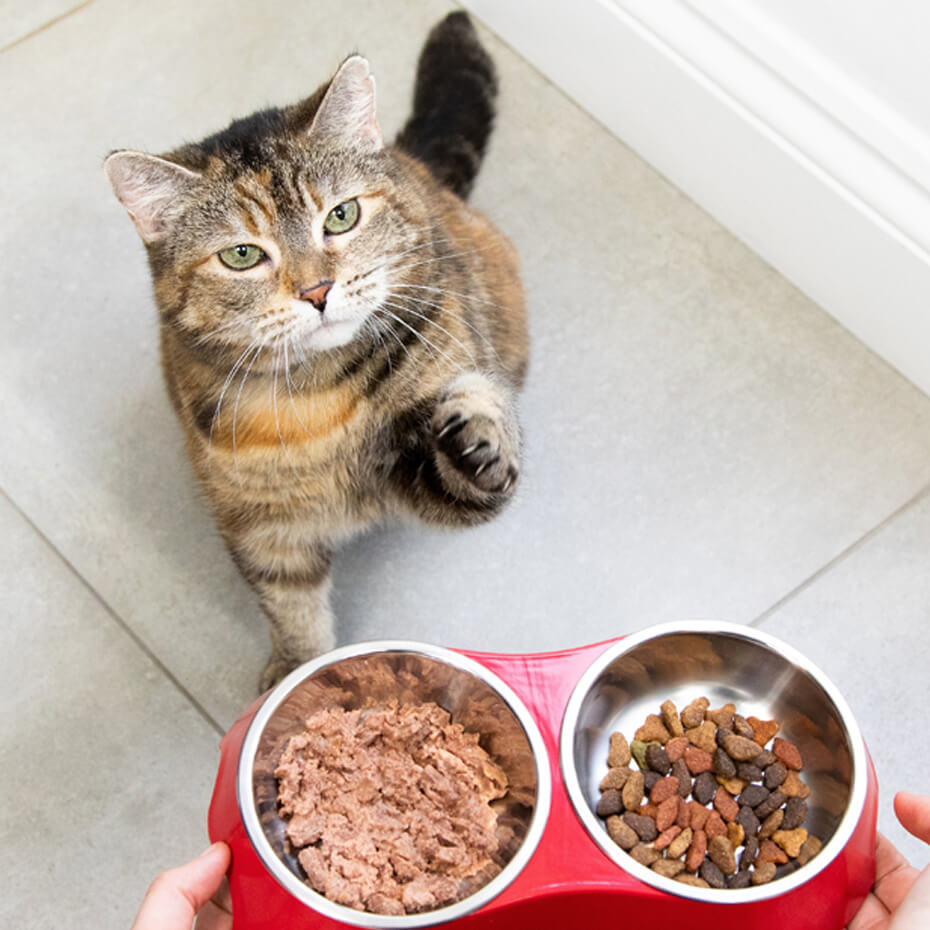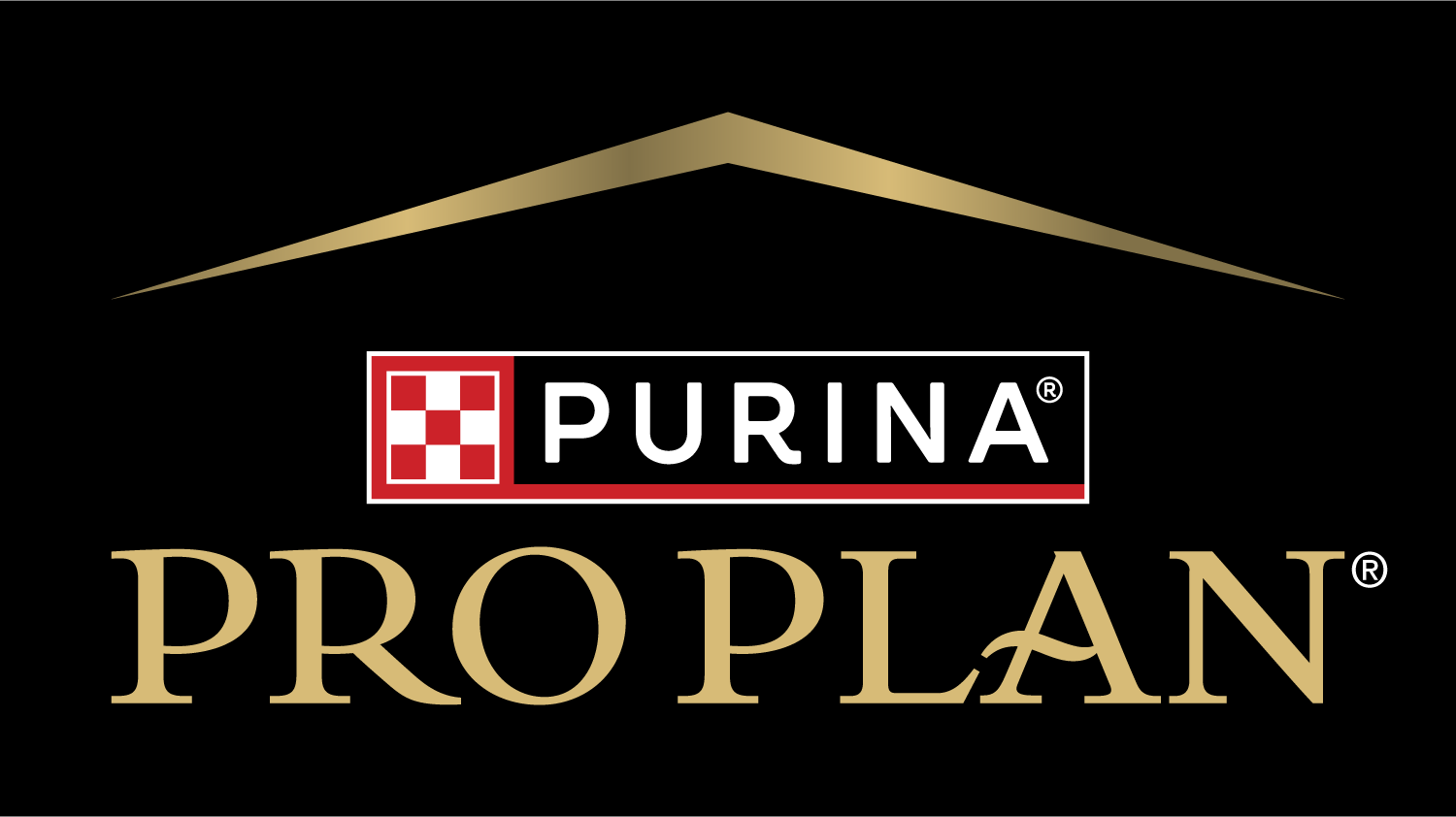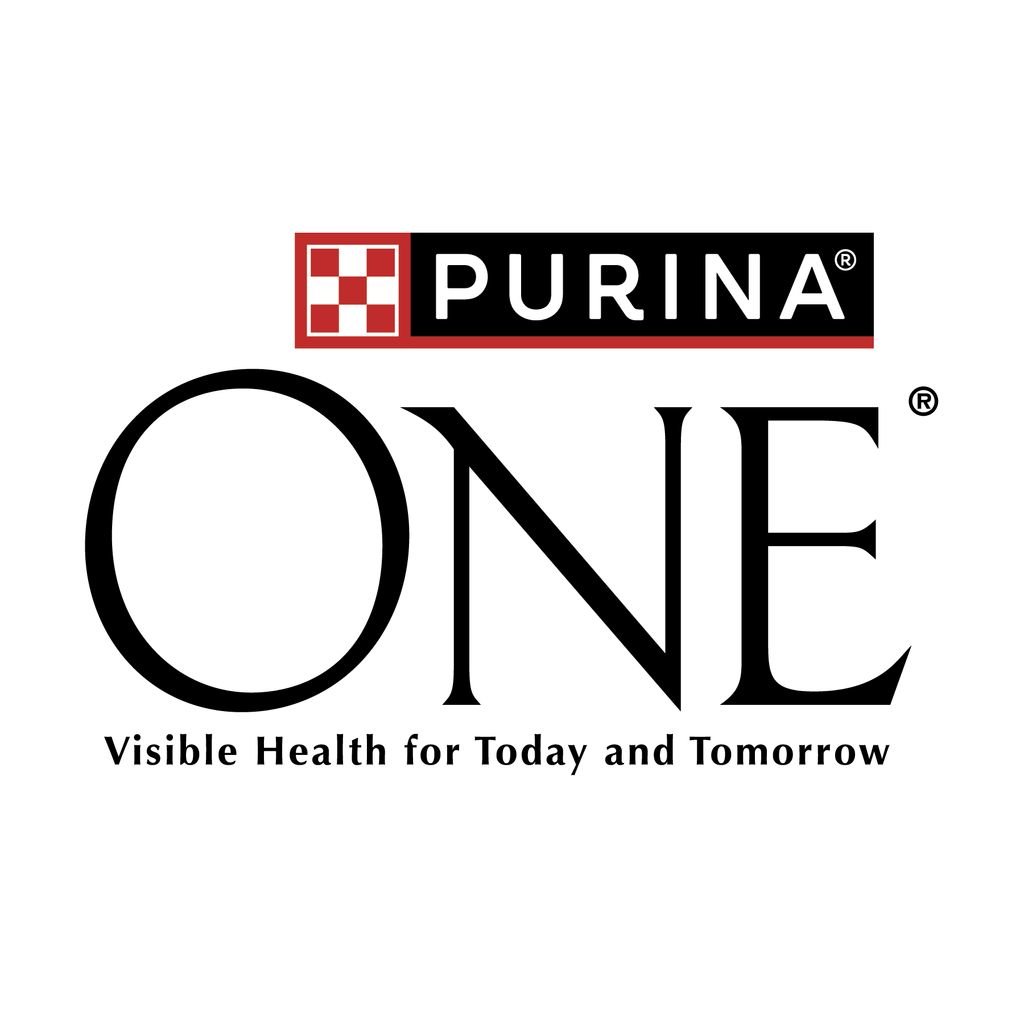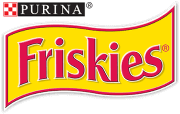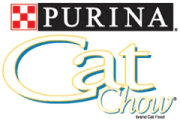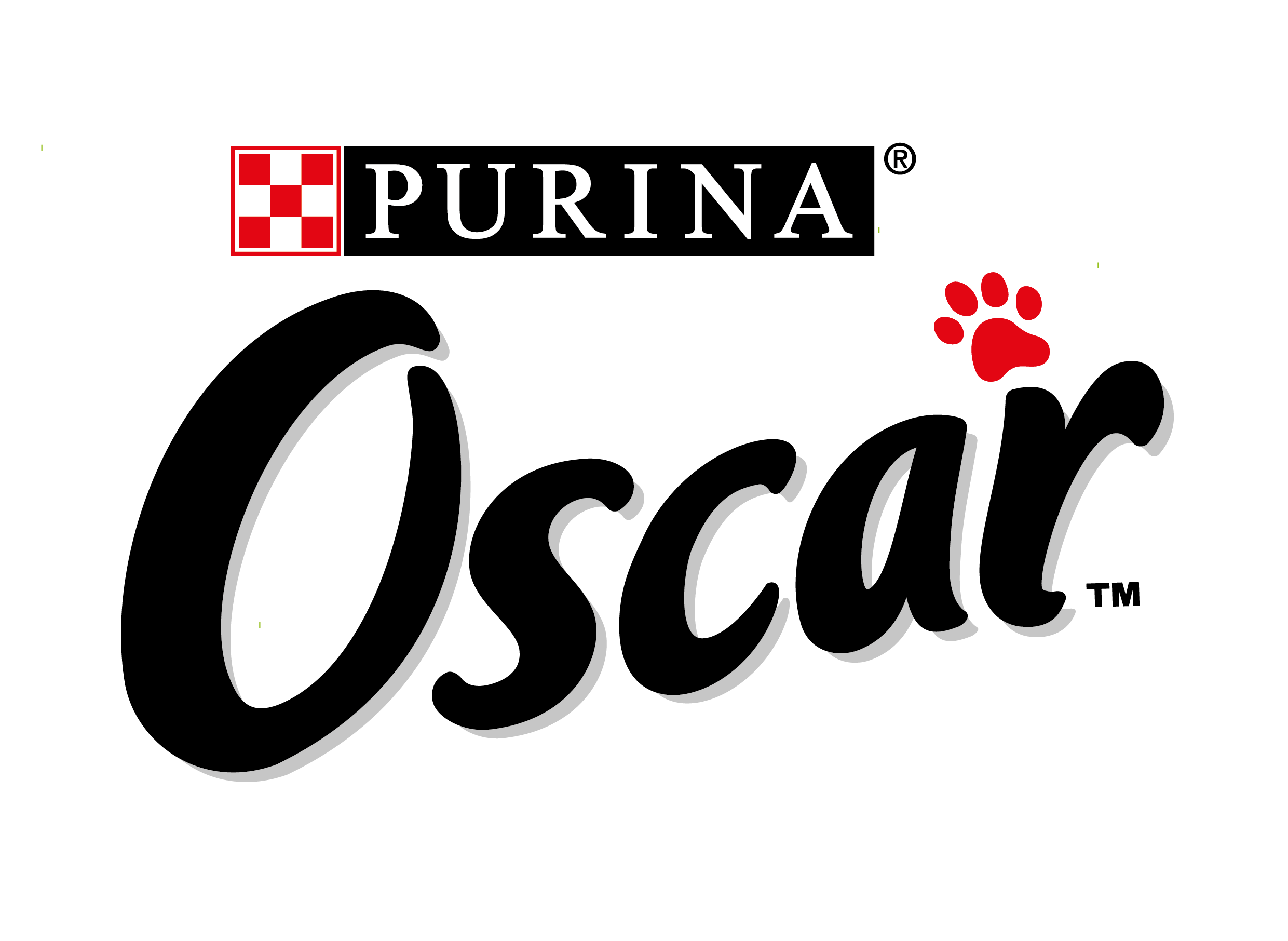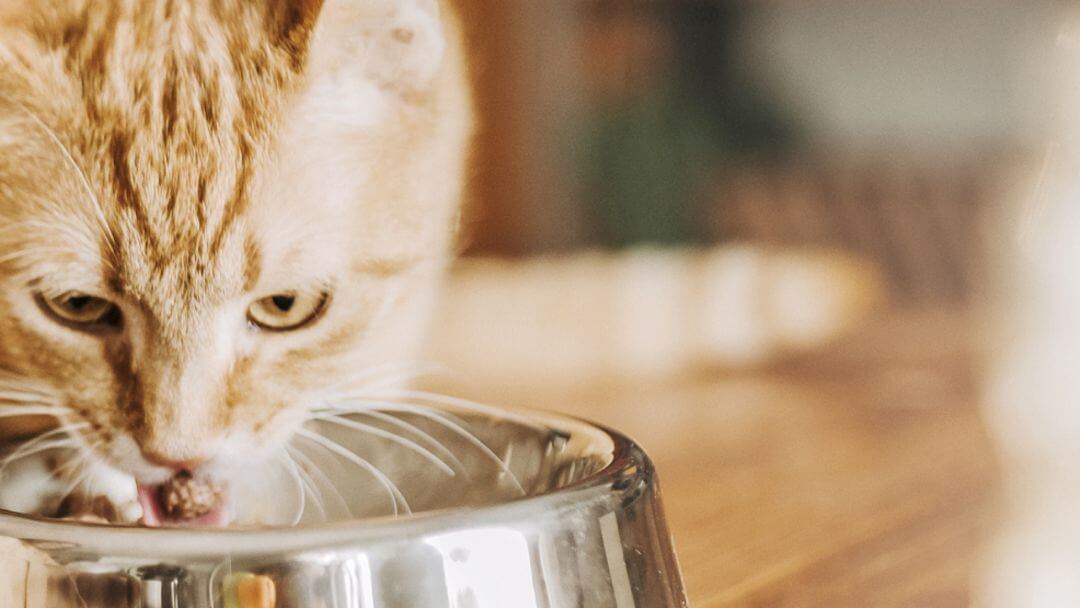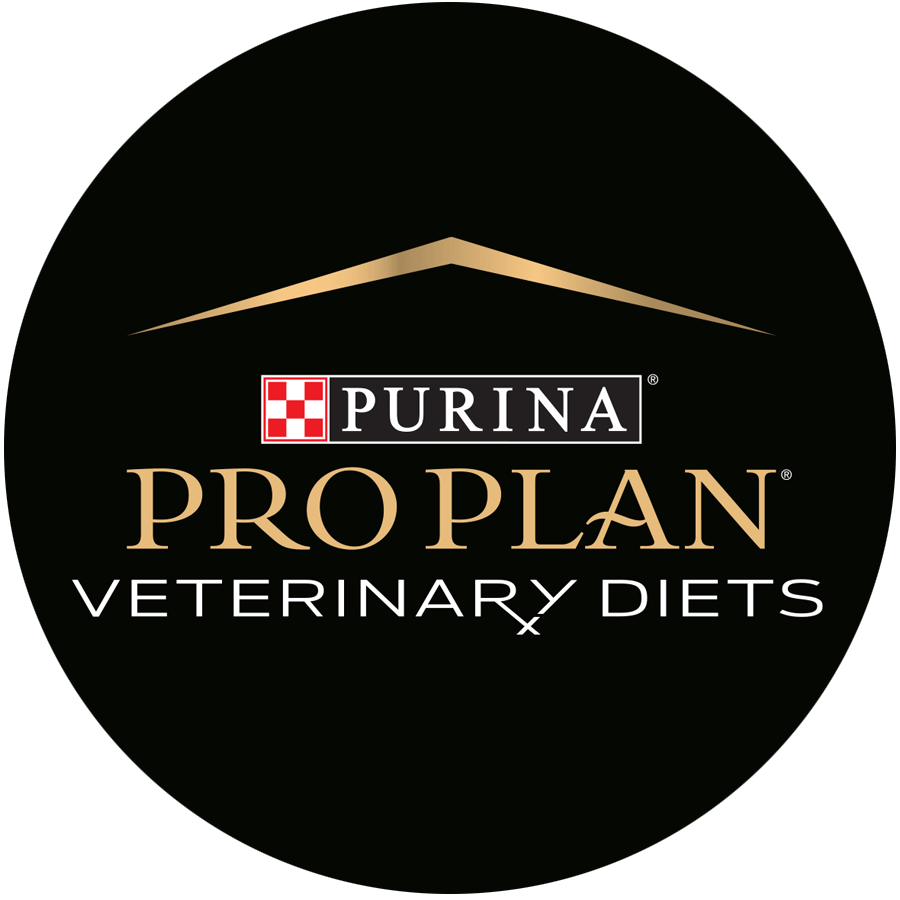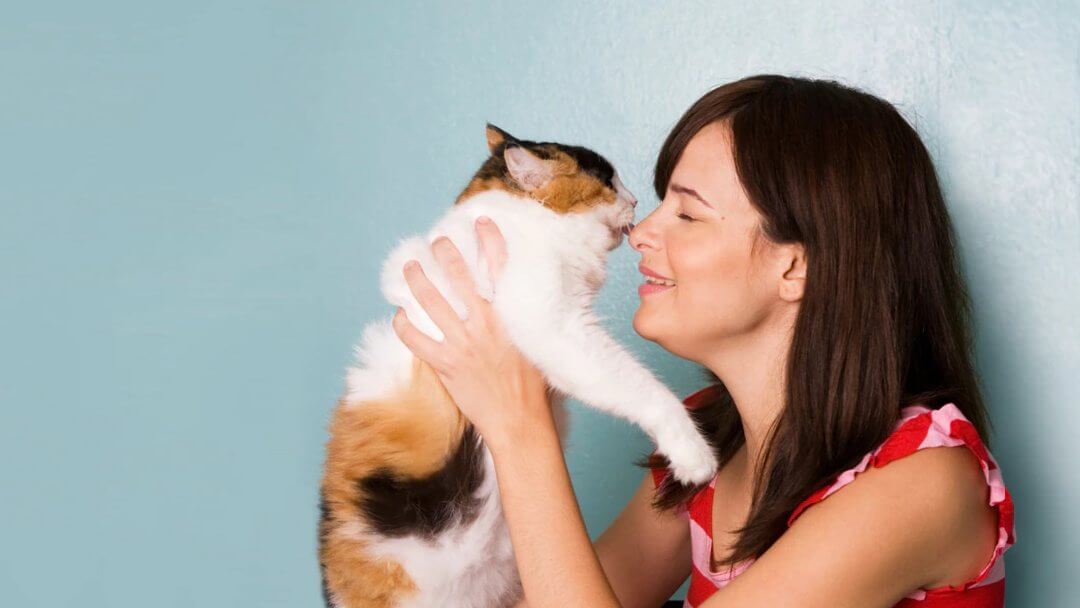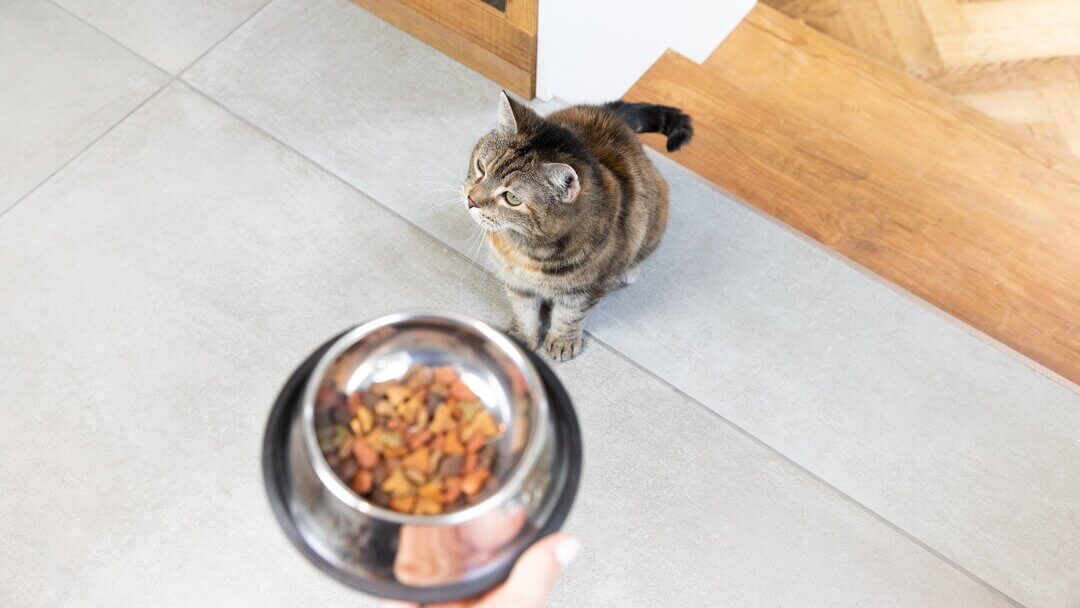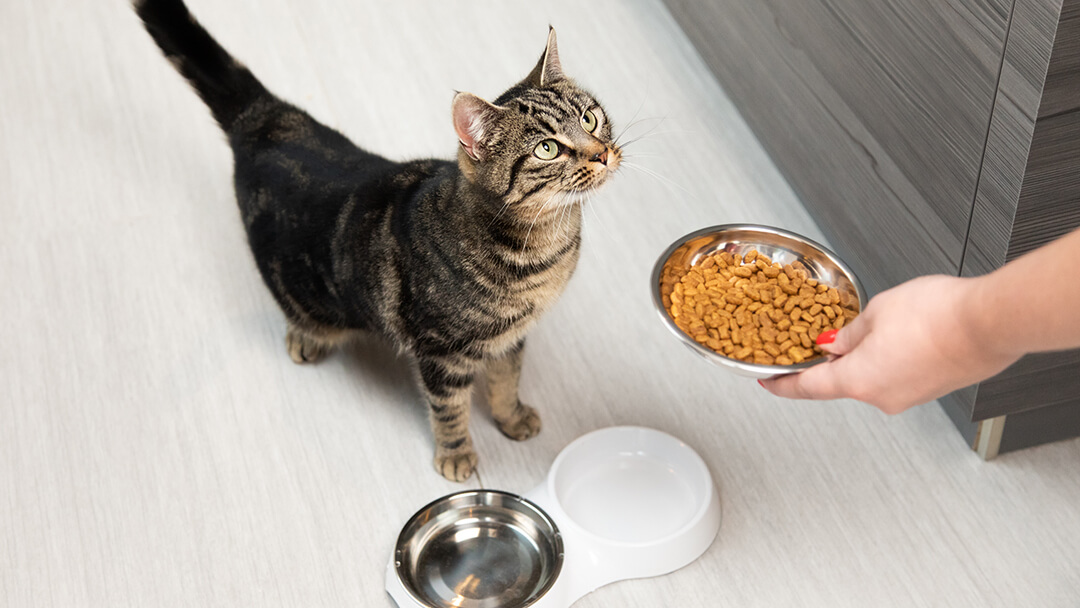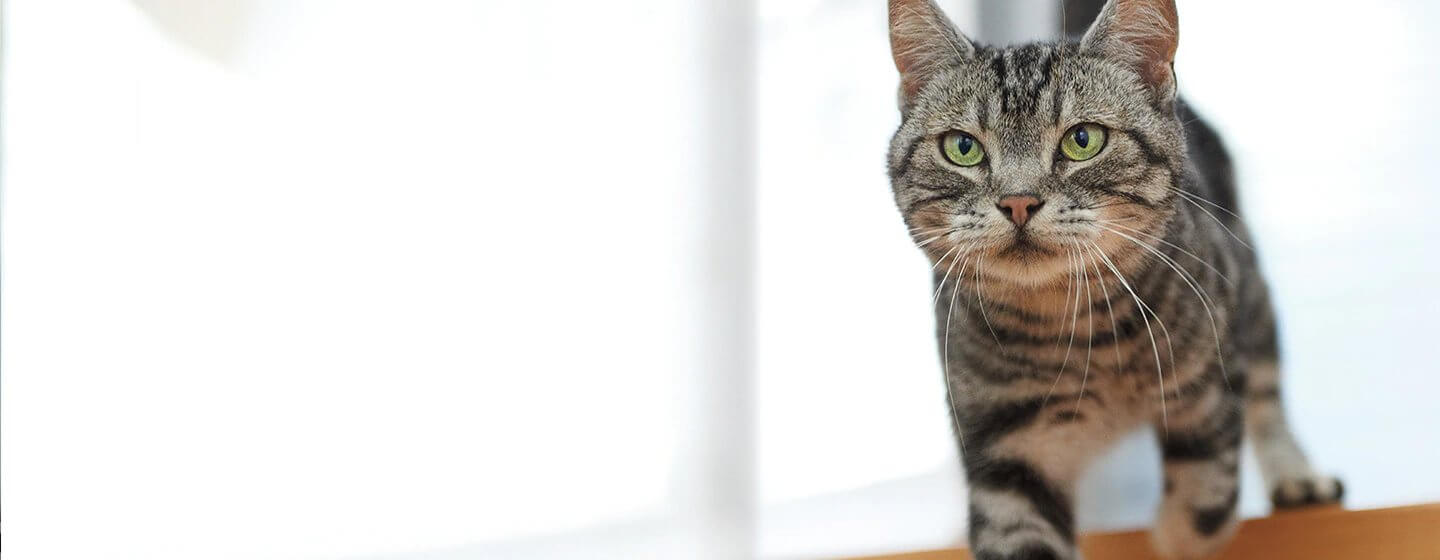
To maintain an optimal body condition, your cat’s diet needs to achieve the right balance of the six major nutrient groups: proteins, fats and oils, minerals, vitamins, carbohydrates and water. A good quality manufactured cat food has all the nutrients required as well as a satisfying taste.
Unless your pet is pregnant or nursing, there is no reason to change their diet until they approach their senior years.
Unlike dogs, cats are carnivores. They need meat in their diet and can become quite ill without it. Your cat needs higher levels of protein because they are unable to manufacture taurine, an essential amino acid that is associated with a healthy heart and good vision. Good protein levels will help your cat maintain flexibility and muscle mobility.
PROTEIN
Protein is a vital nutritional building-block, responsible for releasing energy and forming muscle, skin, hair, antibodies, enzymes, haemoglobin and hormones. Cats require larger quantities of protein than dogs. Good sources of protein include beef, chicken and salmon.
FATS
Fats are an excellent source of energy, providing more than the amount of proteins or carbohydrates. Fats also improve the palatability of food.
CARBOHYDRATES
Carbohydrates are split between simple sugars, which release energy and complex carbohydrates, which release energy more slowly. Sources of carbohydrate include cereals, rice and starchy vegetables.
MINERALS
Minerals are important for the structure of bones and teeth, maintaining the body fluid balance and vital metabolic processes. An excess of one mineral can lead to a deficiency of another, so make sure minerals are provided in a careful balance.
VITAMINS
Like minerals, vitamins are vital for overall healthy growth. An excess or deficiency of vitamins can lead to health problems. Fat soluble vitamins, (A, D, E and K) are stored in your cat’s fatty tissues, whereas water soluble vitamins (B complex and C) are excreted in the urine.
MILK AND WATER
Cats don’t need milk after weaning. In fact, many cats are intolerant to the lactose (milk sugar) in milk, which can cause diarrhoea. Specially made ‘cats milk’ with a low lactose content is becoming more common – but remember that milk is not a substitute for water.
It’s important your cat has access to fresh clean water at all times. Water regulates body temperature, transports nutrients, is involved in chemical reactions and digestion and removes waste. It also keeps their kidneys healthy and reduces the risk of urinary tract infections.
MOIST OR ‘WET’ FOODS
Keep opened cans covered and refrigerated for a maximum of 24 hours. Always serve the contents at room temperature to make food more palatable and easier to digest. Never serve your cat dog food.
COMPLETE DRY FOODS
With high-quality protein, the right balance of nutrients, and a crunchy texture to keep your cat’s teeth healthy, dried foods are very popular with cats. They are more concentrated than moist foods, so only small servings are needed.
Make sure the food is described as ‘complete’ rather than ‘complementary’ otherwise you might be buying a snack treat instead of a balanced meal.
If you are switching from a canned to dried diet, introduce the food gradually over a seven to ten-day period. Always provide lots of fresh water, as dried foods only contain 10 per cent moisture.
It’s a good idea to feed your cat a mixed diet of both canned and dry food. For example, you could feed wet food in the morning and dry food in the evening to introduce some variety.
FRESH MEAT AND OTHER FOODS
Be aware that raw meats may contain parasites, whilst cooked meats can be high in fat and do not contain a proper balance of nutrients.
If you feed fresh meat or fish, always remove the bones, as sharp fragments could stick in your cat’s throat. Never give small soft bones, such as chicken bones to cats, as they may splinter and lodge in their mouth or throat.
Avoid giving liver as a treat as it can become quite addictive. Too much can lead to severe diseases due to the high levels of vitamin A it contains.
Some cats like cheese, yoghurt and scrambled eggs – but remember that human foods are nutritionally unbalanced and should not be fed too frequently. Repeatedly adding raw eggs to a cat’s diet can cause a deficiency of the vitamin biotin, which can lead to dermatitis (inflammation of the skin), loss of hair, and poor growth.
FOOD SUPPLEMENTS
Supplements are not usually necessary when a normal, healthy cat is being fed a complete and balanced diet, unless your cat has special nutritional needs.
Some pet owners believe that extra calcium should be added to the diets of kittens and pregnant females. Whilst it is true that more minerals are needed at these times, they should be obtained through a high quality, nutritionally balanced diet. Adding them out of proportion to other nutrients may contribute to skeletal deformities and other problems.
If you would like more information contact the Purina Pet Care Advice team here for free advice.

